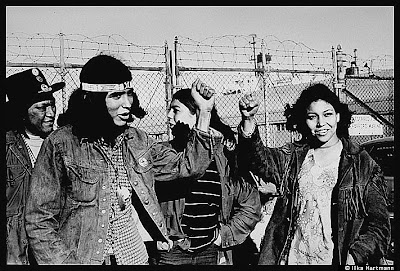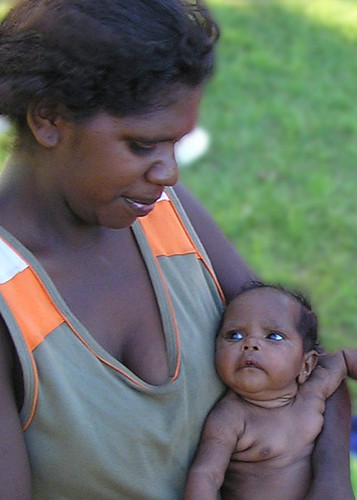 I couldn't resist. This afternoon I go down to our local movie theater, and view Michael Moore's new documentary, Sicko – which is about our nation's broken health-care funding system – on the film's opening day.
I couldn't resist. This afternoon I go down to our local movie theater, and view Michael Moore's new documentary, Sicko – which is about our nation's broken health-care funding system – on the film's opening day.I generally avoid movies on opening day. I don't like crowds. But, I'm so passionately concerned with the subject matter of this film, I don't want to wait.
Evidently, lots of other people feel the same way. The theater is two-thirds filled, at 3:15 in the afternoon on a Friday – for a documentary, for crying out loud! This is also the first movie screening I've been to, for a very long time, in which the audience actually applauds at key points in the film. (Biggest applause line: British Labour Party elder statesman Tony Benn – comparing America's bloated military budget with our paltry health-care expenditures – "If you can find money to kill people, you can find money to help people.")
I'll admit that Michael Moore's films are often over the top. He's not averse to taking the occasional cheap shot at his opponents, for comic effect. Sure, there are a few of these low blows in Sicko, but by and large he just lets the ordinary Americans he interviews speak for themselves. They speak powerfully indeed.
 Moore asks, over and over, some very basic questions about why we do things the way we do, in this country. Why, for example, do we permit doctors who review medical-insurance claims to be paid literally millions in bonuses for denying people medical care? Why does the law require insurance companies to value their fiduciary responsibility to their stockholders more highly than their responsibility to their policyholders? Why do we, as a nation, consider it efficient for the government to run our firehouses, but not our hospitals? How is it moral to allow private companies to waste 14 cents of every health-care dollar on paper-shuffling bureaucratic overhead for people under 65, when Medicare does the same job for seniors, for just 3 cents? Why is it that, of the 25 leading industrialized nations, 24 of them offer their citizens universal health care (guess which one doesn't)?
Moore asks, over and over, some very basic questions about why we do things the way we do, in this country. Why, for example, do we permit doctors who review medical-insurance claims to be paid literally millions in bonuses for denying people medical care? Why does the law require insurance companies to value their fiduciary responsibility to their stockholders more highly than their responsibility to their policyholders? Why do we, as a nation, consider it efficient for the government to run our firehouses, but not our hospitals? How is it moral to allow private companies to waste 14 cents of every health-care dollar on paper-shuffling bureaucratic overhead for people under 65, when Medicare does the same job for seniors, for just 3 cents? Why is it that, of the 25 leading industrialized nations, 24 of them offer their citizens universal health care (guess which one doesn't)? Central to the film is a risky publicity stunt Moore engaged in: taking several ailing 9/11 heroes to Cuba by boat. First stop: the waters outside Guantanamo Bay, where Moore calls out through a bullhorn, asking the guards if his passengers can receive the same medical care the Al Qaeda inmates are getting from our government, gratis (which is significantly better care than these uninsured or underinsured people get on the U.S. mainland). Next stop: a Cuban hospital, in which these disabled rescue workers receive pulmonary treatment free of charge – care they were unable to get in the U.S., because they weren't New York City employees, but rather, patriotic volunteers. Having been to Cuba, I can appreciate what Moore's trying to do, but he failed to mention one important detail: that ordinary Cubans must suffer every day through a dreadful shortage of medicines. Yes, they have excellent doctors, but the Cubans have nowhere to take the prescription scripts their doctors write for them, because the pharmacy shelves are typically bare. (The U.S. trade embargo is partially to blame for that, and Cuban government inefficiency for the rest.) Yet, for all that, Moore's absolutely right in pointing out that the life expectancy of U.S. and Cuban citizens is about the same, and the Cuban infant mortality rate is actually lower.
Central to the film is a risky publicity stunt Moore engaged in: taking several ailing 9/11 heroes to Cuba by boat. First stop: the waters outside Guantanamo Bay, where Moore calls out through a bullhorn, asking the guards if his passengers can receive the same medical care the Al Qaeda inmates are getting from our government, gratis (which is significantly better care than these uninsured or underinsured people get on the U.S. mainland). Next stop: a Cuban hospital, in which these disabled rescue workers receive pulmonary treatment free of charge – care they were unable to get in the U.S., because they weren't New York City employees, but rather, patriotic volunteers. Having been to Cuba, I can appreciate what Moore's trying to do, but he failed to mention one important detail: that ordinary Cubans must suffer every day through a dreadful shortage of medicines. Yes, they have excellent doctors, but the Cubans have nowhere to take the prescription scripts their doctors write for them, because the pharmacy shelves are typically bare. (The U.S. trade embargo is partially to blame for that, and Cuban government inefficiency for the rest.) Yet, for all that, Moore's absolutely right in pointing out that the life expectancy of U.S. and Cuban citizens is about the same, and the Cuban infant mortality rate is actually lower. In France, Moore interviews a group of American expatriates who have nothing but good things to say about the French government medical benefits they receive, free of charge. These Americans abroad sheepishly confess to feeling guilty that they have so much less to worry about, medically, than their family members back home.
In France, Moore interviews a group of American expatriates who have nothing but good things to say about the French government medical benefits they receive, free of charge. These Americans abroad sheepishly confess to feeling guilty that they have so much less to worry about, medically, than their family members back home.In Canada, he takes his camera into a government health-clinic waiting room, and asks the ordinary people sitting there if they can confirm all the bad things he's heard about unreasonable waiting times and inferior care. None of that's true, the Canadians tell him, matter-of-factly. Their system works, and they're proud of it.
There's much more I could say about the film – a little of it negative, but the vast preponderance of it positive. Go see it, with an open mind. Listen to the stories of ordinary people, whose lives have been ruined – and who, in some cases, have lost loved ones – due to medical-insurance profiteering. Then, as Moore himself does in the film, ask the really tough question: which system – universal health care, or private insurance – is more moral?
 Go see Sicko. It just could be the most important movie you see this year.
Go see Sicko. It just could be the most important movie you see this year.



























 [press release, Coalition for HR 2003 ]
[press release, Coalition for HR 2003 ] It makes me feel like saying Ethiopia, you are coming home! You are returning to your honorable traditions: of hig makeber, of gaaddisa nagayaa, of shemgilna, of gurabet mekebabir, of beherawi andenet. You may be saying goodby to outmoded customs such as hamet, mesedadeb, political sem-inna worq, and politik be-temenja.
It makes me feel like saying Ethiopia, you are coming home! You are returning to your honorable traditions: of hig makeber, of gaaddisa nagayaa, of shemgilna, of gurabet mekebabir, of beherawi andenet. You may be saying goodby to outmoded customs such as hamet, mesedadeb, political sem-inna worq, and politik be-temenja.









June 24th, 2007 at 11:06 am Steve
I just got an email the other day about reviewing this and I’m waiting for a copy to arrive. I’m reading David Talbot’s “Brothers” which includes a lot of stuff about Hoover, the FBI and the CIA. There’s a lot of similarites between then and now in “Brothers” as well. History is said to repeat itself. Sadly.
June 24th, 2007 at 2:58 pm The human race is afflicted with a particularly virulent form of the authoritarian gene. It expresses itself in an overriding need to push other people around. My shorthand for the syndrome is “Military Mentality”. Not everyone who has the jobs (military, police, prisons) has the gene, but pretty much everyone with the gene has one of the jobs.
The Founders were insightful enough to try to neutraize this by putting civilians in charge of the military. As for the rest, what we really need to do to protect ourselves is to not criminalize anything unless there is a real strong reason for doing so. Instead, we have a set of rules and regulations in our society so gargantuan that each of is almost guaranteed to violate something almost every day.
From that is where people like J. Edgar get their power.